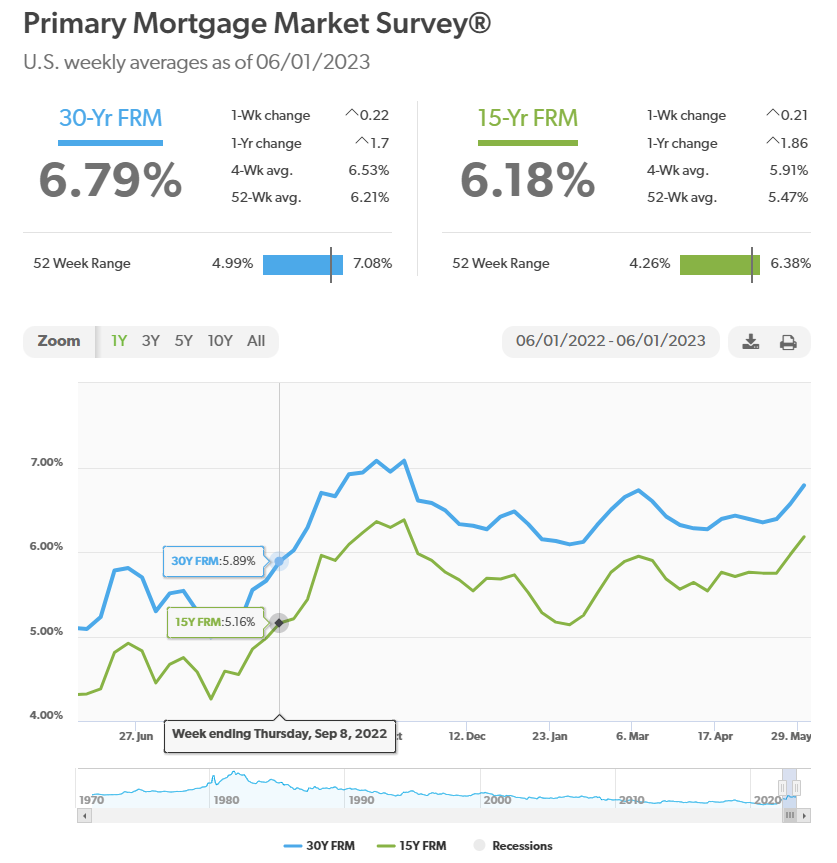
Freddie Mac: Mortgage Rates Jumped Up This Week

Both 30-year and 15-year fixed rates rose more than 20 basis points.
- The 30-year fixed-rate mortgage averaged 6.79% as of June 1.
- The 15-year fixed-rate mortgage averaged 6.18%.
Freddie Mac said Thursday that mortgage rates spiked this week, with the average rates for both the 30-year and 15-year fixed loans jumping more than 20 basis points.
According to the government-sponsored enterprise’s weekly Primary Mortgage Market Survey:
- The 30-year fixed-rate mortgage averaged 6.79% as of June 1, up 22 basis points (bps) from last week when it averaged 6.57%. A year ago, it averaged 5.09%.
- The 15-year fixed-rate mortgage averaged 6.18%, up 21 bps from last week’s average of 5.97%. A year ago, it averaged 4.32%.
The 30-year average rate was at its highest since it was 6.73% in early March, while the 15-year average was at its highest since it was 6.38% in early November.
Freddie Mac’s PMMS is focused on conventional, conforming, fully amortizing home-purchase loans for borrowers who put 20% down and have excellent credit.
“Mortgage rates jumped this week, as a buoyant economy has prompted the market to price-in the likelihood of another Federal Reserve rate hike,” said Sam Khater, Freddie Mac’s chief economist. “Although there has been a steady flow of purchase demand around rates in the low to mid-6% range, that demand is likely to weaken as rates approach 7%.”
Jiayi Xu, economist for Realtor.com, said the fear of a debt default continued to spread last week, which may have pushed the rates higher.
“The fear of debt default affects mortgage rates through government-backed bonds,” Xu said. “Investors lend money to the government through these bonds for a fixed term, earning interest. If the U.S. defaults on its debt, bond investments become riskier, resulting in increased yields and potentially higher mortgage rates. With the bill approval from the House on Wednesday, the likelihood of default is getting lower.”
Still, he said, it’s important to note that successfully passing a debt-ceiling deal does not “provide an absolute safeguard” against negative financial and economic consequences.
“Once the deal is reached, the U.S. government is expected to quickly increase issuance of Treasury bills, which has the potential to cause short-term liquidity challenges at banks, as businesses and households may reallocate their funds towards higher-yielding and relatively safer government debt,” Xu said. “In order to keep attracting depositors, banks might be compelled to raise interest rates, thereby squeezing profit margins. This could lead to further rate increases across various loan products offered by banks, including both business loans and personal loans.”




